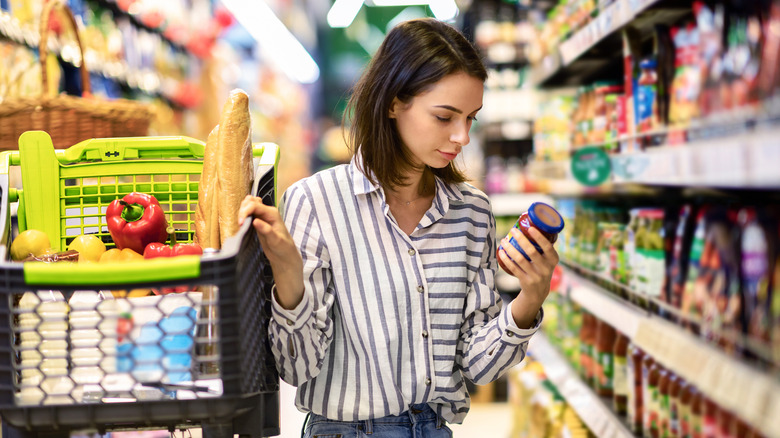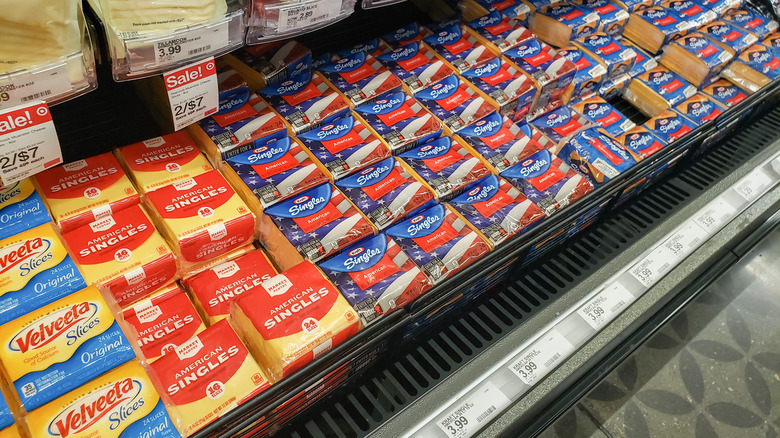Tasting Table Asks: Will Inflation Change The Way You Shop?
As food costs continue to rise, many consumers are likely to face higher and higher grocery bills. The same products that were easily budgeted for last year could be more costly now — or even totally unaffordable — leading some shoppers to cut back on inessential foods like snacks and desserts or cut them out completely. This financial strain on consumers has caused food sales to go down, per Food Business News, even as grocers are reporting receipt totals are going up.
Food inflation has been steadily increasing, and as of July, the index hit 10.9% — a number that Trading Economics reports is "the highest since May 1979." The site states that drinks, coffee, and dairy products have been hit with the largest increases, and unfortunately, it doesn't look like prices will drop significantly any time soon.
In light of this, Tasting Table asked shoppers if they would consider switching to private label brands in order to save money, and the results overwhelmingly swayed one way.
Customers are willing to change which brands they buy
As rising grocery costs continue to affect consumers, the overwhelming majority of survey respondents report that they will be changing the way they shop. Of the 615 answers in a Tasting Table survey, 40.65% of people voted that they were likely to switch to private label food brands in order to save money. Another 32.52% said they were very likely to make the switch. Combined, that's almost three-quarters of survey respondents who are more than willing to change their shopping habits to combat rising costs. It appears the change may already be in motion, as Forbes reports that private label brands have been on the rise over the last year.
Although many people may opt for a cheaper brand next time they go grocery shopping, some people are less affected by the ever-changing prices: 18.37% of survey respondents know what they like and would rather continue to support their preferred brands, despite potential price increases. As for the remaining 8.46%, they reported that they already primarily purchase private label foods, so there was no big switch necessary.

